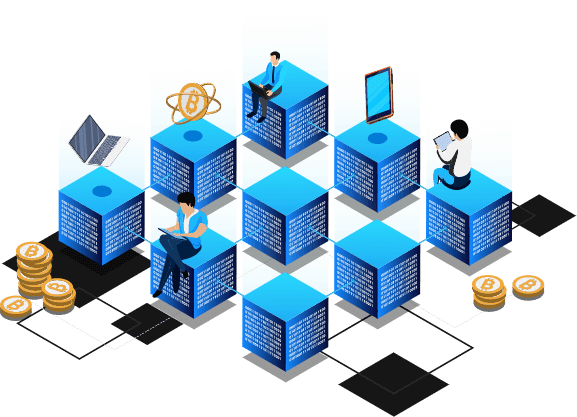
Voting systems exist at all levels and in all scenarios. It may be used for choosing a school prefect or electing a country's president. The most sophisticated voting systems are often deployed by the government to support voting as a fundamental democratic activity. Digital voting methods are now employed to overcome the challenges faced by paper balloting but a single flaw in this system can often cause massive vote-rigging. A decentralized voting system using blockchain can provide safe means for keeping the process private, secure, and integral.

Importance of Blockchain for Electronic Voting System
A blockchain never has a single point of failure as it is distributed among multiple nodes. This is what makes blockchain-based voting systems more resilient against cyberattacks, denial of service, and database deletion. Blockchain technology is an ideal solution for the voting ecosystem as it offers data immutability. This means that once a record is made, introducing any changes is impossible without leaving a trace. In a voting system, this protocol eliminates the risk of any tampering that can be done with the voting results.
Governments can now use blockchain to the balloting process to reduce human intervention. This not only increases the speed of vote counting but also mitigates the risk of fraud and human errors. When compared to other trending e-voting solutions, a blockchain-based balloting platform makes it easier to verify results and perform audits.
Existing Challenges for Government Voting Systems
Elections hold a consequential place in a democracy as they directly decide the future of a country. A very serious concern
faced by big democracies like the US, India, and Japan is the lack of trust that the society has in the current election systems.
Here are a few other problems faced by the public sector:
Benefits of Blockchain for Electronic Voting System
Using blockchain for electronic voting systems can help ensure the accuracy, security, and accessibility of the election process,
while also building trust in the electoral results and reducing costs. Here are some of the solutions provided by a blockchain-
based voting system.
Why Choose Antier for building a secure voting system based on blockchain?
Work with us to design and develop a custom blockchain-based voting system that meets the specific needs and requirements of your government. Integrate and implement a using blockchain that complies with existing government systems and infrastructure. Our complicit training and support services can help government officials and employees learn how to use blockchain voting systems effectively.

Our Partners
Spotlight on Insights
Want to decode the secrets of blockchain, cryptocurrencies, NFTs, metaverse, and associated technologies? Read our blog to gain insights!






























































